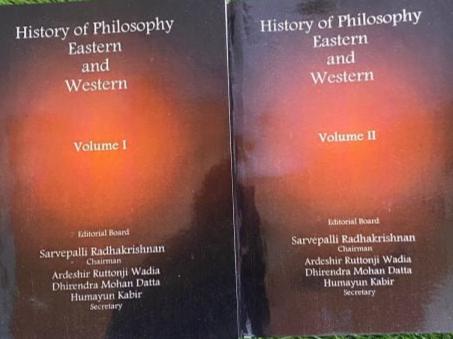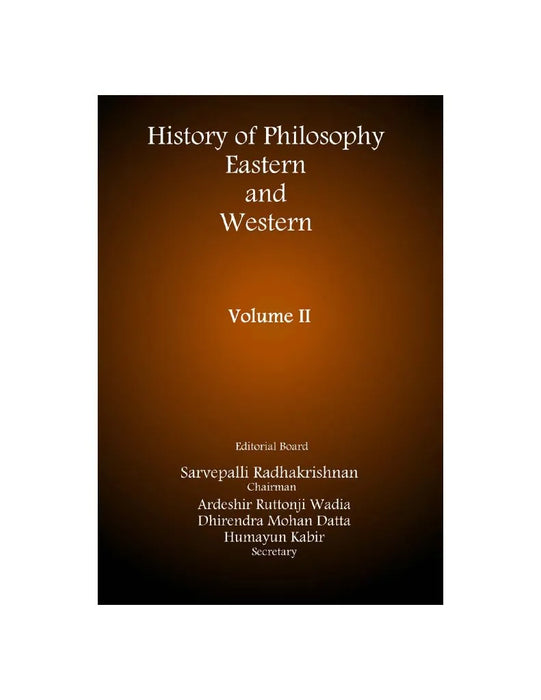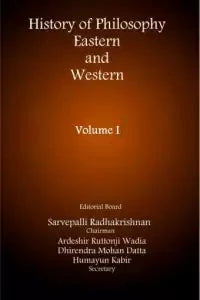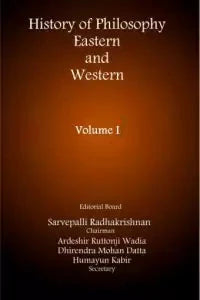History of Philosophy: Eastern and Western by Sarvepalli Radhakrishnan
- Publisher: PHILOSOPHY
- Availability: In Stock
- SKU: 57738
Rs.1,140.00
Rs.1,300.00
Tags: ancient Greek philosophers , Aristotle , Buddhist philosophy , Chinese philosophy , classical philosophy , comparative philosophy , Confucian philosophy , cultural philosophy , global philosophy , Greek philosophy , Indian philosophy , Indian philosophy thinkers , philosophical traditions , philosophy for beginners , philosophy for scholars. , philosophy of ethics , Plato , Sarvepalli Radhakrishnan , Socrates , spiritual philosophy , Western philosophy thinkers
"History of Philosophy: Eastern and Western" by Sarvepalli Radhakrishnan is a profound exploration of philosophical traditions from both Eastern and Western perspectives. The two volumes offer a detailed examination of philosophical thought, spanning ancient to modern times. Radhakrishnan, a renowned philosopher, statesman, and scholar, presents these diverse traditions with great depth and clarity, aiming to bridge the cultural gap between the philosophies of the East and the West.
Volume 1 - Eastern Philosophy:
- Focus: Volume 1 is dedicated to Eastern philosophy, covering the rich traditions of Indian, Chinese, and Japanese philosophical schools. Radhakrishnan explores the early philosophical foundations of these cultures, from the Upanishads and the Bhagavad Gita to Buddhist and Confucian philosophies.
- Content: The volume discusses key Eastern thinkers such as Confucius, Laozi, the Buddha, and key Indian philosophers like Shankaracharya, and outlines their contributions to the understanding of existence, ethics, and spirituality.
- Approach: Radhakrishnan compares and contrasts Eastern thought with Western philosophical approaches, providing insight into concepts like the self, God, and the universe as interpreted through Eastern lenses.
Volume 2 - Western Philosophy:
- Focus: Volume 2 focuses on Western philosophical traditions, examining the major schools of thought from ancient Greece to modern European philosophers. It includes discussions of Greek philosophers like Socrates, Plato, and Aristotle, as well as significant figures from the Renaissance, Enlightenment, and the Modern Era such as Descartes, Kant, Hegel, and Nietzsche.
- Content: The volume traces the development of Western thought, from the classical foundations of metaphysics, epistemology, and ethics to the emergence of existentialism, phenomenology, and analytic philosophy.
- Comparative Approach: Radhakrishnan explores how Western philosophers have dealt with the same existential and metaphysical questions as their Eastern counterparts, offering a cross-cultural perspective on issues like the nature of the soul, the problem of evil, and human consciousness.
Key Features:
-
Comprehensive Coverage
- The book provides a broad yet detailed survey of both Eastern and Western philosophies, ensuring that readers gain an understanding of the major thinkers and ideas from both traditions.
-
Comparative Analysis
- Radhakrishnan's ability to juxtapose Eastern and Western philosophical ideas is one of the strengths of this work, giving readers a deeper insight into the universal nature of philosophical inquiry.
-
Historical Context
- Each philosopher and philosophical movement is presented within its historical and cultural context, offering a clear understanding of how these ideas evolved and interacted with social and political changes.
-
Philosophical Depth
- The work dives into complex philosophical themes such as metaphysics, ethics, epistemology, and spirituality, making it an essential resource for anyone interested in deepening their understanding of philosophy.
-
Engagement with Primary Texts
- The author engages directly with the primary texts of the philosophers discussed, offering interpretations and critiques that add value for readers interested in exploring original works.
-
Accessible to Both Beginners and Scholars
- Radhakrishnan writes in a style that is accessible to beginners while also offering depth and scholarly insight for advanced students of philosophy.
-
Cultural Integration
- The text is not merely an academic work but also an exploration of the ways in which Eastern and Western thought are intertwined and how they inform each other.
-
Balanced Representation of Philosophies
- The work ensures that both Eastern and Western philosophies are represented in a balanced manner, without bias, thus giving equal weight to both traditions.
-
Thematic Organization
- The volumes are well-organized thematically, allowing readers to follow philosophical concepts as they evolve across cultures and time periods.
-
Timeless Value
- Given its thorough treatment of the history of philosophy, this work remains a foundational text for anyone seeking to understand the intellectual history of humanity.
Conclusion:
"History of Philosophy: Eastern and Western (Volumes 1 & 2)" by Sarvepalli Radhakrishnan is a monumental work that bridges the gap between two of the world’s most significant philosophical traditions. It offers a detailed, comprehensive, and accessible overview of the major schools of thought from both the East and the West, exploring their similarities, differences, and evolution. The work is a key resource for anyone interested in comparative philosophy, the intellectual history of humanity, and the exploration of universal philosophical questions.



























